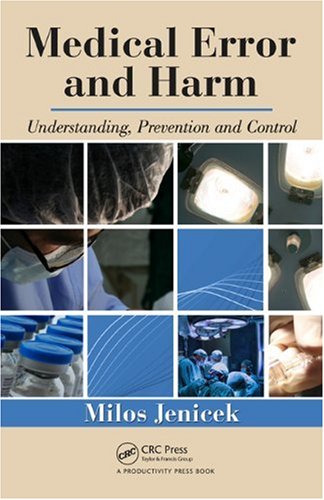

Most ebook files are in PDF format, so you can easily read them using various software such as Foxit Reader or directly on the Google Chrome browser.
Some ebook files are released by publishers in other formats such as .awz, .mobi, .epub, .fb2, etc. You may need to install specific software to read these formats on mobile/PC, such as Calibre.
Please read the tutorial at this link. https://ebooknice.com/page/post?id=faq
We offer FREE conversion to the popular formats you request; however, this may take some time. Therefore, right after payment, please email us, and we will try to provide the service as quickly as possible.
For some exceptional file formats or broken links (if any), please refrain from opening any disputes. Instead, email us first, and we will try to assist within a maximum of 6 hours.
EbookNice Team

Status:
Available4.6
33 reviewsRecent debate over healthcare and its spiraling costs has brought medical error into the spotlight as an indicator of everything that is ineffective, inhumane, and wasteful about modern medicine. But while the tendency is to blame it all on human error, it is a much more complex problem that involves overburdened systems, constantly changing technology, increasing specialization, and a cycle of continual funding shortfalls made even more acute by resource-wasting inefficiencies.
Medical Error and Harm: Understanding, Prevention and Control,presents the work of long time physician and teacher Milos Jenicek, a pioneering expert on epidemiology, evidence-based medicine, and critical thinking and decision making in the health sciences. Providing an extraordinarily comprehensive overview of the subject that is as thorough and scientifically organized as it is accessible and free of rhetoric, Dr. Jenicek —
The book also discusses whether dealing with errors is a learned skill and looks at how much of the problem with medical error is caused by the medical community’s failure to teach, learn, and understand everything there is to know about medical error, including the often neglected importance of critical thinking skills. Understanding and correcting this shortfall is a primary responsibility of every health professional, one they can begin to realize with the study of these pages.